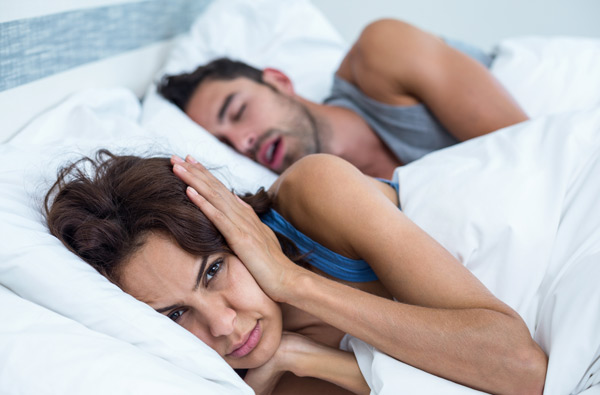Jackson (731) 300-3000
Bells(731) 663-9999 Milan(731) 613-2800 Lexington(731) 617-9818
Schedule Your Appointment Our Membership Plans
Schedule Your Appointment Our Membership Plans
What Is Sleep Apnea?Bells, Jackson, Milan & LexingtonSleep Apnea Treatment provided by Our Expert Dentists in Bells, Jackson, Milan & Lexington, TN at Premier Dental Center  Our experts here at Premier Dental Center are prepared with solutions to treat sleep apnea. Sleep apnea is characterized by brief and repeated breathing interruptions during sleep. Our experts here at Premier Dental Center are prepared with solutions to treat sleep apnea. Sleep apnea is characterized by brief and repeated breathing interruptions during sleep. Types of Sleep ApneaThere are two types of sleep apnea diagnoses: obstructive sleep apnea and central sleep apnea. The type of sleep apnea depends on the root cause of sleep disordered breathing. Obstructive sleep apnea occurs when muscles in the back of the throat cannot keep open the airway, creating an obstruction, which causes patients to snore loudly. The other type of sleep apnea, known as central sleep apnea, is caused by the failure of the brain to control breathing properly during sleep. However, obstructive sleep apnea is the more common of the two types of sleep apnea. Symptoms of Obstructive Sleep ApneaObstructive sleep apnea (OSA) manifests through various symptoms, primarily due to the repeated times when a person stops breathing during sleep.
Symptoms of Central Sleep ApneaCentral sleep apnea (CSA) presents distinct symptoms compared to obstructive sleep apnea. While both types involve breathing disruptions during sleep, CSA occurs when the brain fails to send proper signals to the muscles responsible for breathing. As a result, individuals with CSA may experience more subtle symptoms, such as difficulty staying asleep or frequent awakenings during the night. Unlike OSA, CSA is not typically associated with loud snoring, but rather with shallow or irregular breathing patterns. Daytime symptoms may include fatigue, trouble concentrating, and mood disturbances, similar to those experienced with OSA. Untreated sleep apnea can lead to fragmented sleep, as well as low blood oxygen levels. People with untreated sleep apnea suffer from a combination of unhealthy oxygen levels and disturbed sleep, which can lead to an increased risk for heart disease, memory and mood problems, and hypertension. The risk of drowsy driving is also high if you have sleep apnea. Causes of Sleep ApneaSome factors can cause you to develop sleep apnea. You have a high chance of developing sleep apnea if your upper airway is small or if to have a large tongue, uvula or tonsils. Being overweight also increases the risk of developing sleep apnea. A recessed chin, large overbite, and small airway also increase the risk of developing this condition. If your neck is on the larger side, which is described as equal to or greater than 17 inches for men and 16 inches for women, you are at a higher risk of developing sleep apnea. Alcohol use and smoking are also common risk factors for sleep apnea. Smoking increases fluid retention and inflammation in the upper airway. Tranquilizers or sedatives can also increase the chance of developing sleep apnea. It is difficult to differentiate between the symptoms and signs of obstructive and central sleep apnea as they often overlap. Waking up with a dry mouth, morning headache, gasping for air, or daytime sleepiness can be some of the signs that you need to go for sleep apnea diagnosis. Treating Sleep ApneaVisiting our offices in Bells, Jackson, Milan, & soon Lexington, TN when you suspect that you might be displaying symptoms of sleep apnea can be the most beneficial decision you make as a proactive measure to counter the condition. You will first need to participate in a polysomnogram, which is a sleep apnea test, by our team of qualified professionals. The test is simply a sleep study made up of multiple tests that can react and transmit observed physical activities electronically when you are asleep. These recordings can then be analyzed by our team of experts with the aim of determining whether you have sleep apnea or not. The best option for treating a possible case of the condition is arrived at through further tests. Night Mouth Guards for BruxismIn addition to addressing sleep apnea, it's essential to consider related conditions that can exacerbate symptoms or impact treatment efficacy. Bruxism, or teeth grinding, commonly coexists with sleep apnea and can contribute to oral health issues and discomfort. Night mouth guards, also known as occlusal splints or bite guards, offer a simple yet effective solution for managing bruxism. These custom-fitted devices are worn during sleep to protect the teeth from damage caused by grinding and clenching. By cushioning the teeth and providing a barrier between the upper and lower jaws, night guards can alleviate jaw pain, reduce tooth wear, and promote a more restful sleep environment. Oral Appliance TherapyOral appliance therapy is a non-invasive treatment option for obstructive sleep apnea that offers an alternative to continuous positive airway pressure devices (CPAP machines). These custom-made oral devices, also known as mandibular advancement devices (MADs) or dental sleep appliances, are designed to reposition the lower jaw and tongue to prevent airway obstruction during sleep. By gently shifting the position of the jaw forward, oral appliances help to keep the airway open, and promote unobstructed breathing throughout the night. Oral appliance therapy is well-tolerated by most people with sleep apnea and offers greater flexibility and comfort compared to traditional CPAP machines. Our experienced dental team can assess your individual needs and determine if oral appliance therapy is a suitable treatment option for your sleep apnea. Call Your Dentists in Bells, Jackson & Milan, TN for Sleep Apnea Questions and Appointments!Sleep apnea treatment may include a sleep study, oral appliance therapy, or overall lifestyle changes, such as incorporating breathing exercises, weight loss, and other preventive measures such as avoiding alcohol and sleeping pills. For more information about sleep apnea and the benefits of treatment, call Premier Dental Center at one of our three convenient locations today! |
|
|
Bells
|